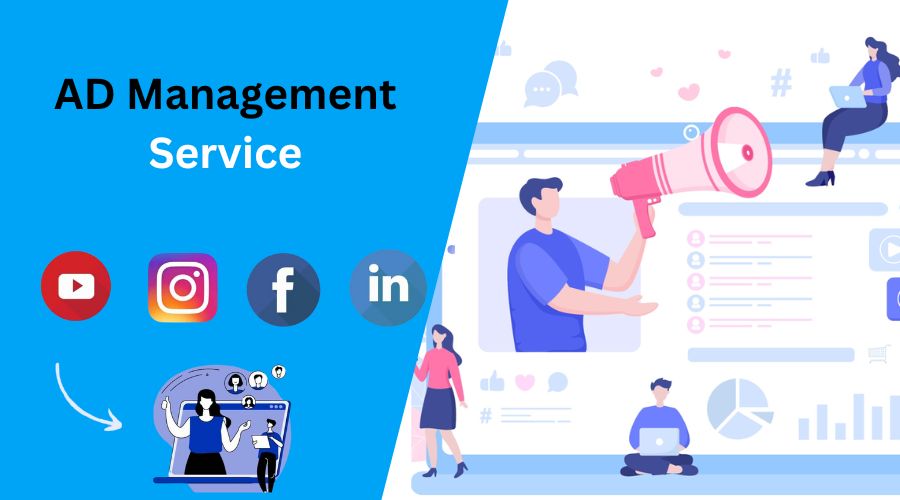In today’s digital age, partnering with a Web Development Company in Florida or a Web design company can significantly enhance the website performance of your site, which can make or break your online presence. Slow-loading pages, unresponsive designs, and compatibility issues can frustrate users and drive them away. This comprehensive guide will walk you through the essential steps to optimize your website performance, ensuring a smooth and enjoyable user experience.
Understanding Website Performance
Definition and Components
Website performance refers to how quickly and efficiently a website loads and operates. It encompasses several components, including page load speed, mobile responsiveness, and browser compatibility. Each of these elements plays a crucial role in the overall user experience.
Impact on User Experience and SEO
A well-optimized website not only enhances user satisfaction but also boosts your search engine rankings. Search engines like Google prioritize fast, user-friendly websites, making optimization an integral part of any successful SEO strategy.
The Role of a Web Development Company in Florida
Expertise in Local Markets
Partnering with a web development company in Florida can offer significant advantages. These companies understand the local market dynamics and can tailor their services to meet the specific needs of businesses in the region.
Benefits of Choosing a Regional Company
Choosing a regional web design company in Florida means you’ll benefit from localized support, quicker response times, and a better understanding of your target audience. They can provide personalized solutions that align with your business goals.
Core Aspects of Website Optimization

Page Load Speed
The speed at which your website loads is critical. Users expect pages to load within seconds, and any delay can lead to higher bounce rates and lost opportunities.
Mobile Responsiveness
With the increasing use of mobile devices, ensuring your website is mobile-friendly is essential. A responsive design adapts to different screen sizes, providing a seamless experience across all devices.
Browser Compatibility
Your website should function flawlessly on all major browsers. Cross-browser compatibility ensures that users have a consistent experience, regardless of the browser they use.
Page Load Speed
Importance of Fast Loading Times
Fast loading times are crucial for retaining visitors and improving your search engine rankings. Studies show that even a one-second delay can significantly impact user engagement and conversion rates.
Tools to Measure Speed
There are several tools available to measure your website’s speed, such as Google PageSpeed Insights, GTmetrix, and Pingdom. These tools provide insights and recommendations for improving load times.
Strategies to Improve Load Times
To enhance your page load speed, consider the following strategies:
- Optimize images by compressing them without sacrificing quality.
- Minimize the use of large files and unnecessary plugins.
- Enable browser caching to reduce the need for repeated data loading.
Mobile Responsiveness
The Rise of Mobile Internet Usage
Mobile internet usage has surpassed desktop usage, making it imperative for websites to be mobile-friendly. A responsive design ensures that your site adapts to various screen sizes and devices.
Techniques for Responsive Design
Implementing responsive design techniques involves using flexible grids, layouts, and media queries. This approach allows your website to automatically adjust to the user’s device, providing an optimal viewing experience.
Testing Mobile Performance
Regular testing on different devices and screen sizes is essential. Tools like Google’s Mobile-Friendly Test and BrowserStack can help you identify and fix any mobile responsiveness issues.
Browser Compatibility
Ensuring Functionality Across Different Browsers
Achieving browser compatibility means your website should work seamlessly on all popular browsers, including Chrome, Firefox, Safari, and Edge. Each browser may render your site differently, so it’s crucial to ensure consistency.
Tools for Cross-Browser Testing
Use tools like BrowserStack, CrossBrowserTesting, and LambdaTest to test your website on various browsers and devices. These tools can help you identify and resolve any compatibility issues.
Optimizing Images and Media
Image Compression Techniques
Large images can slow down your website significantly. Use image compression tools like TinyPNG, JPEGoptim, or ImageOptim to reduce file sizes without compromising quality.
Video Optimization Strategies
Videos are becoming increasingly popular, but they can also slow down your site. Optimize videos by compressing them, using efficient formats like MP4, and enabling lazy loading to delay loading until the video is needed.
Leveraging Caching
Browser Caching
Browser caching stores static files on the user’s device, reducing the need to reload them every time they visit your site. This can significantly improve load times for returning visitors.
Server-Side Caching
Server-side caching involves storing dynamic content generated by your server. This reduces the processing time required to load pages, enhancing overall performance.
Content Delivery Networks (CDNs)
CDNs distribute your website’s content across multiple servers worldwide. This reduces latency by serving content from the server closest to the user, resulting in faster load times.
Minimizing HTTP Requests
Combining Files
Each HTTP request adds to the load time. By combining files, such as CSS and JavaScript, you can reduce the number of requests and speed up your site.
Reducing the Number of Elements on a Page
Simplify your design by minimizing the number of elements on each page. This reduces the load on your server and improves performance.
Utilizing Modern Web Technologies

HTML5 and CSS3 Advantages
Modern web technologies like HTML5 and CSS3 offer numerous benefits, including improved semantics, better multimedia handling, and enhanced design capabilities. Utilizing these technologies can improve both performance and user experience.
Implementing JavaScript Frameworks
JavaScript frameworks like React, Angular, and Vue.js can enhance your website’s functionality and performance. They allow for efficient coding practices and dynamic content loading.
SEO Best Practices
Keyword Optimization
Incorporate relevant keywords, such as Web Development Company in Florida and Web design company florida, throughout your content. This helps search engines understand your site’s focus and improves your rankings.
Meta Tags and Descriptions
Ensure each page has unique meta tags and descriptions. These elements provide search engines with information about your content, aiding in proper indexing and ranking.
User-Friendly URLs
Create clear, descriptive URLs that include relevant keywords. User-friendly URLs improve both SEO and user experience.
Digital marketing is important for boosting your business online.
Security Measures
Importance of Website Security
Security is crucial for protecting your website and user data. A secure site builds trust with visitors and safeguards against malicious attacks.
Implementing HTTPS
Switching to HTTPS encrypts data transferred between the server and the user, enhancing security. Search engines also favor HTTPS sites, improving your SEO.
Regular Security Audits
Conduct regular security audits to identify and address vulnerabilities. Tools like Sucuri and Qualys can help you monitor and enhance your site’s security.
Monitoring and Analytics
Tools for Monitoring Performance
Regularly monitor your website’s performance using tools like Google Analytics, Google Search Console, and Pingdom. These tools provide valuable insights into your site’s speed, traffic, and user behavior.
Importance of Analytics in Ongoing Optimization
Analytics help you understand how users interact with your site, highlighting areas for improvement. Use this data to make informed decisions and continuously optimize your website.
Conclusion
Optimizing website performance is an ongoing process that requires attention to various factors, from load speed and responsiveness to security and SEO. By following the strategies outlined in this guide, you can enhance your website’s performance, improve user experience, and achieve better search engine rankings.
Contact Us
If you’re ready to take your website to the next level, contact Social Booster Marketing, the leading Web Development Company in Florida. Our expert team is here to help you optimize your site’s performance and enhance your online presence. Call us today at (786) 756-6350 to discuss your project and learn how we can assist you. Don’t forget to check out our customer reviews on Google My Business to see why we’re the trusted choice for web development in Florida.









